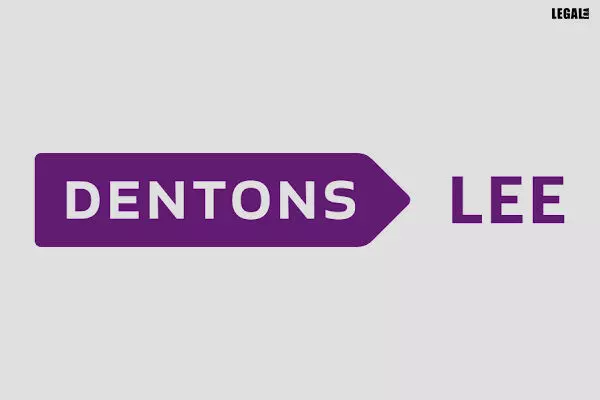- Home
- News
- Articles+
- Aerospace
- Artificial Intelligence
- Agriculture
- Alternate Dispute Resolution
- Arbitration & Mediation
- Banking and Finance
- Bankruptcy
- Book Review
- Bribery & Corruption
- Commercial Litigation
- Competition Law
- Conference Reports
- Consumer Products
- Contract
- Corporate Governance
- Corporate Law
- Covid-19
- Cryptocurrency
- Cybersecurity
- Data Protection
- Defence
- Digital Economy
- E-commerce
- Employment Law
- Energy and Natural Resources
- Entertainment and Sports Law
- Environmental Law
- Environmental, Social, and Governance
- Foreign Direct Investment
- Food and Beverage
- Gaming
- Health Care
- IBC Diaries
- In Focus
- Inclusion & Diversity
- Insurance Law
- Intellectual Property
- International Law
- IP & Tech Era
- Know the Law
- Labour Laws
- Law & Policy and Regulation
- Litigation
- Litigation Funding
- Manufacturing
- Mergers & Acquisitions
- NFTs
- Privacy
- Private Equity
- Project Finance
- Real Estate
- Risk and Compliance
- Student Corner
- Take On Board
- Tax
- Technology Media and Telecom
- Tributes
- Viewpoint
- Zoom In
- Law Firms
- In-House
- Rankings
- E-Magazine
- Legal Era TV
- Events
- Middle East
- Africa
- News
- Articles
- Aerospace
- Artificial Intelligence
- Agriculture
- Alternate Dispute Resolution
- Arbitration & Mediation
- Banking and Finance
- Bankruptcy
- Book Review
- Bribery & Corruption
- Commercial Litigation
- Competition Law
- Conference Reports
- Consumer Products
- Contract
- Corporate Governance
- Corporate Law
- Covid-19
- Cryptocurrency
- Cybersecurity
- Data Protection
- Defence
- Digital Economy
- E-commerce
- Employment Law
- Energy and Natural Resources
- Entertainment and Sports Law
- Environmental Law
- Environmental, Social, and Governance
- Foreign Direct Investment
- Food and Beverage
- Gaming
- Health Care
- IBC Diaries
- In Focus
- Inclusion & Diversity
- Insurance Law
- Intellectual Property
- International Law
- IP & Tech Era
- Know the Law
- Labour Laws
- Law & Policy and Regulation
- Litigation
- Litigation Funding
- Manufacturing
- Mergers & Acquisitions
- NFTs
- Privacy
- Private Equity
- Project Finance
- Real Estate
- Risk and Compliance
- Student Corner
- Take On Board
- Tax
- Technology Media and Telecom
- Tributes
- Viewpoint
- Zoom In
- Law Firms
- In-House
- Rankings
- E-Magazine
- Legal Era TV
- Events
- Middle East
- Africa
Dentons Lee wins patent infringement suit relating to the construction of a dam in Djenne Mali, Africa

Dentons Lee wins patent infringement suit relating to the construction of a dam in Djenne Mali, Africa
The Seoul Central District Court recently ruled in favour of the defendants in a patent infringement suit related to the construction of a dam in Djenne Mali, Africa. Senior Attorney Seung-Hun Lee and Attorney Sung-Ha Park of Dentons Lee, represented the Defendants.
The facts of the present case are that the dam construction at Djenne Mali was a business project led by the Export-Import Bank of Korea as the hosting financial institution, with the Mali government receiving support via the Economic Development Cooperation Fund of the Korean government. The builder on the project was a joint venture between Samsung C&T and Haejeon Industrial Co., Ltd.
The Plaintiff, a dam engineering company claimed that the technology used in the dam gate of the construction project was identical to that of the Plaintiff's patented technology, in pursuant to which he filed a patent infringement lawsuit.
Dentons Lee represented the Defendants and argued that the Plaintiffs did not establish that an actionable patent infringement had occurred in Korea. The Plaintiff registered its patent in Korea. The Defendants only manufactured portions of the dam gate in Korea, but exported the parts to Mali, and the dam construction occurred in Mali. Therefore, the claimed patent infringement (which the Defendants denied) could not be proved in Korea where the patent was registered because all of the elements needed to establish a patent infringement did not occur in Korea.
In light of the evidences and submissions made before the Court agreed, the judges were of the opinion that only the component parts were manufactured in Korea and then exported to Mali and incorporated into an allegedly infringing dam gate in Mali, all elements of infringement did not occur in Korea and this would not constitute a patent infringement in Korea.
By way of this Decision the Court has now provided guidance on territorial principles regarding patents and ruled that to prove patent infringement in Korea, all elements of infringement must occur in Korea. This ruling will provide important guidance on claims in Korea stemming from alleged overseas patent infringement.



